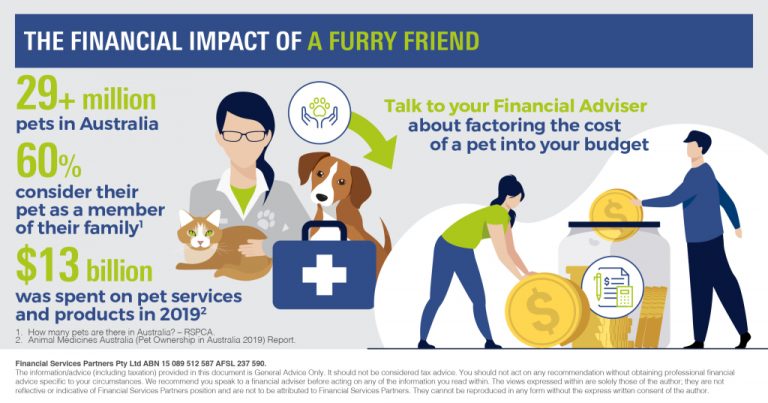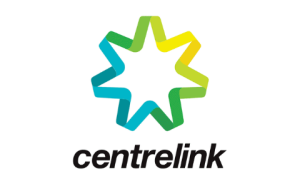The benefits of pets
Many people boast the benefits of a pet – love, affection, happiness, joy, improved mental wellbeing, improved physical fitness and the chance to teach children about gentleness and responsibility. The Baker Medical Research Institution in Melbourne studied seniors with pets over a three-year period and found that a benefit of pets within the study group was lower blood pressure and cholesterol levels.
Early in 2020, during the height of the COVID-19 pandemic reports mentioned a spike in animal adoption as people sought to lockdown with a household pet for company. Animal shelters were pleased with increased adoption numbers, but hoped pets would not be a fad and be surrendered as people struggled with the economic downturn and loss of income – or could not care for their pet when they returned to an office environment.
Studies into the benefits of pets are clear, and we also know they are for keeps so we want to look after our furry friends and know we can continue to afford to do so.
The true cost of a pet
Research by Animal Medicines Australia (Pet Ownership in Australia 2019) discovered that a staggering $13 billion was spent on pet services and products in that year. Dog owners spent, on average, $1,627 per year on food, veterinary services, healthcare products and accessories.
ASIC’s Money Smart website predicts that vet care is the second-highest annual cost for dog and cat owners in their study with the Pet Ownership in Australia Report and they have developed a simple calculator on their website to help you understand, and budget for, the cost of a pet[2].
Pet insurance
Just as we protect our own income and lifestyle from a life event through a personal insurance plan, pet insurance can give you peace of mind knowing you will be financially protected in the event your pet suffers an unexpected illness or injury as it can lower the cost of surgery and medication significantly.
For dog owners, the right pet insurance policy can protect your dog against a portion of the costs associated with vet bills due to injury from accidents like dog attacks and car accidents. You can also choose a policy that includes illness coverage. Some policies can be paid either upfront, or in instalments, which may help you to better manage your cashflow.
Talk to your adviser about including the cost of a pet in your budget
If you’re smart about your finances and upfront with yourself about the cost of a pet, you can keep your budget in-check and remain financially secure – even if unexpected pet expenses crop up if your furry friend becomes ill or injured.
Next time you have a financial review with your financial adviser, let them know if they need to factor in the cost of a pet to your overall financial budget.
Sources:
[1] How many pets are there in Australia? – RSPCA
[2] https://moneysmart.gov.au/getting-a-pet
Additional source: https://www.rspcapetinsurance.org.au/why-pet-insurance-important
DISCLAIMER
Financial Services Partners Pty Ltd
www.financialservicespartners.com.au
ABN 15 089 512 587 AFSL 237 590. The information/advice (including taxation) on this website is General Advice Only. It has been prepared without taking into account any of your individual objectives, financial situation or needs. Before acting on this advice you should consider the appropriateness of the advice, having regard to your own objectives, financial situation and needs. You should obtain a Product Disclosure Statement relating to the products mentioned, and consider the statements before making any decision about whether to acquire products or services.
We take your privacy seriously and as such we, or any of the Financial Services Partners financial advisers, will never ask you to transfer money via email request unless we have spoken to you in person or the transfer is part of an existing arrangement between you and your financial adviser. If you receive any such requests that are outside the agreed arrangements you have with your financial adviser, please contact our office immediately to confirm the validity the request before you take any action – .
The views expressed in this publication are solely those of the author; they are not reflective or indicative of the Licensee’s position and are not to be attributed to the Licensee. They cannot be reproduced in any form without the express written consent of the author.






